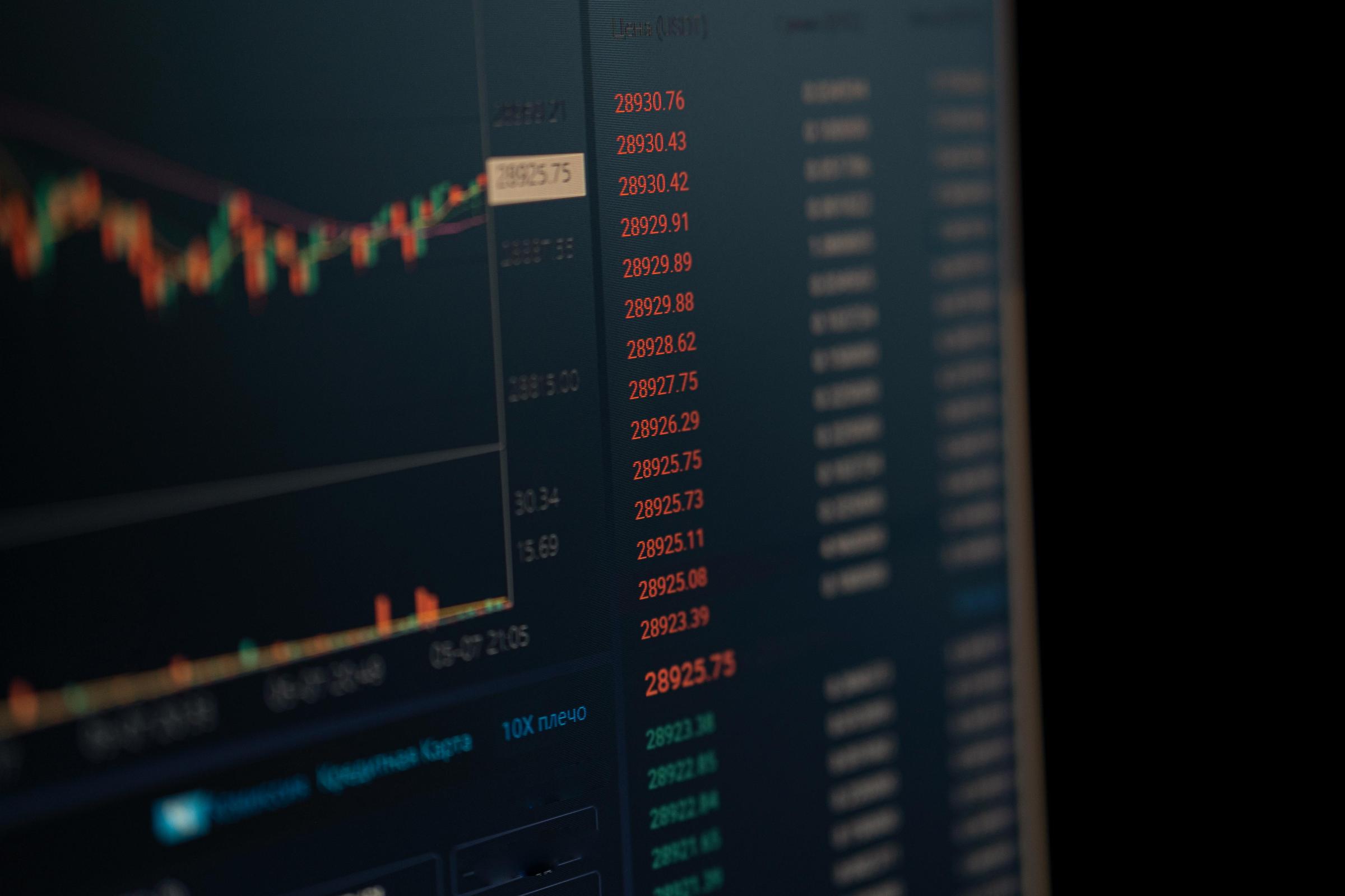How to Hire a Crypto Trader
The surge in cryptocurrency trading has been fueled by the decentralized nature of digital currencies, enabling peer-to-peer transactions without intermediaries. This transfer of financial power from traditional institutions to individual traders has allowed for greater participation, autonomy, and control in the market.
With that being said, the crypto market is still characterized by substantial volatility and risks. To address it, crypto traders must be able to navigate this dynamic landscape by implementing risk management strategies, conducting thorough research, and staying informed about market trends and patterns. As crypto continues to evolve, crypto traders will play a very important role in investment portfolio and account growth for their clients and the companies they work for.

What are the responsibilities of a Crypto Trader?
Crypto traders face a complex balancing act, managing volatile assets in an unpredictable market while mindful that their decisions have far-reaching impacts beyond their own profits - potentially influencing broader market sentiment, investor confidence, and the health of the crypto ecosystem. The role demands strategic foresight, ethical judgment, and diligent attention beyond mere buying and selling.
Let’s take a look at key responsibilities of a Crypto Trader:
Market analysis: Analyzing market trends, staying updated with the latest news and developments in the cryptocurrency industry, and understanding technical analysis, chart patterns, and indicators to make informed trading decisions. All of these are important tasks a Crypto Trader is responsible for on a daily basis due to the ever-changing shifts in the crypto market.
Strategy development and implementation: Developing and implementing short-term and long-term trading strategies, managing trading accounts, and ensuring compliance with regulatory requirements.
Trade execution: Crypto traders should be able to execute trades based on analysis and strategies, managing risk, and monitoring portfolio performance.
Risk management: Setting stop-loss orders and implementing risk management strategies to protect capital, maintaining discipline and emotional control to avoid impulsive trading decisions are all responsibilities a crypto trader is entrusted with.
Studying trends: Continuously educating themselves about new cryptocurrencies, blockchain technology, and market trends to stay ahead in this rapidly evolving industry. This is an important aspect of a crypto trader’s job, they always have to be ahead of the curve to advise for and against certain steps in client interest.
Financial responsibility: Crypto traders must adhere properly to financial regulations, disclosure requirements, custody procedures, licensing maintenance, transaction reporting, and other such aspects related to the financial advisory role in the crypto industry.
Client communication: Communication with clients about crypto holdings, regulatory changes, and other relevant information is extremely important for crypto traders. In some cases clients can be impulsive, anxious, excited about changes in the market and as such the responsibility of clear and ongoing communication falls upon them.
Due diligence: Conducting thorough due diligence on crypto assets, including assessing the legitimacy and technical details, analyzing market dynamics and liquidity, reviewing exchanges and platforms, and ensuring security practices.
These responsibilities are able to ensure that Crypto Traders make informed trading decisions, manage risk effectively, and adhere to financial regulations while providing value to clients and the broader cryptocurrency ecosystem.
In addition to these responsibilities, here are some important factors to look for when hiring a Crypto Trader
Verify credentials: Always request proof of their trading performance, including historical data, and conduct thorough background checks to ensure their credibility. Be cautious of candidates with unrealistic promises, lack of transparency, or a history of regulatory violations. Don’t rush the hiring process, as hiring the wrong person can lead to significant financial losses.
Assess risk management: A reliable crypto trader should have a solid understanding of risk management principles and be able to demonstrate their ability to manage risks effectively.
Evaluate technical skills: Look for candidates with a strong understanding of trading platforms, tools, and indicators, as well as the ability to analyze market trends and data. Don’t overlook the need for continuous learning for a role like this. The crypto market is constantly evolving, so it's essential to hire traders who are committed to staying up-to-date with market trends, regulations, and technological advancements.
Consider emotional intelligence: Crypto trading requires patience, discipline, and the ability to manage emotions. Assess the candidate's emotional intelligence and ability to make rational decisions under pressure. Always perform thorough background checks and verify the candidate's claims about their trading performance.
Where to find your next Crypto Trader
Since crypto trading is a high-risk undertaking, it is usually advised to steer clear of informal channels like Discord, Reddit, and Twitter where several self-proclaimed traders lurk in the dark and promise unrealistic gains. That is a major red flag and must be avoided at all costs.
Some of the more promising places would be talent boards, specifically Web3 talent boards, where thousands of experienced crypto trader profiles exist, along with mentions of previous work experiences and portfolio management examples. There is usually a small fee attached to access the complete database, but several promising and talented professionals can be found there. You can also opt for blockchain recruitment agencies, who have a great record of headhunting and placing top crypto professionals across various projects and companies. While it costs a bit more, they take the headache of searching, vetting, interviewing and presenting candidates to you.
Questions to ask when hiring Crypto Traders
With the rise of crypto trading, businesses and individuals face the unique challenge of selecting competent traders to manage their investments amid a landscape filled with risks and self-proclaimed experts. That is why asking the right questions during the hiring process is crucial to making informed hiring decisions that safeguard assets. Let’s walk you through some questions that can help you judge whether a candidate is a good fit or not.
Can you explain the basics of blockchain technology and how it relates to cryptocurrencies?
The purpose of this question is to help you gauge the candidate's understanding of the underlying technology that drives cryptocurrencies. Any beginner crypto trader would be able to tell you about this and this question would help you weed out any amateur or hobbyist traders who don’t have much knowledge about how blockchain tech works.
What is your experience with various cryptocurrencies, such as Bitcoin, Ethereum, and altcoins?
The purpose of this question is to understand the candidate's familiarity with different cryptocurrencies and their unique features. Bonus points if they are able to give you some historical data and trends regarding them.
How do you approach risk management in your trading strategy?
The purpose of this question is to assess the candidate's ability to manage risks associated with crypto trading, such as market volatility and regulatory changes. The candidate must be able to draw on past experiences in this case to illustrate their point. It will also help you understand how they navigated risk previously.
Can you walk us through a recent trade you made and the analysis that led to that decision?
The purpose of this question is to help you evaluate the candidate's ability to analyze market trends, identify trading opportunities, and make informed decisions. Again, the candidate should mention the scenario in detail from start to finish.
How do you stay updated on market news and regulatory developments that could impact your trading decisions?
The purpose of this question is to understand the candidate's ability to stay informed about market conditions and regulatory changes that could affect their trading strategy. A candidate should mention any news websites, blogs, newsletters, podcasts, exchanges and more to be able to justify how they stay updated and what information they take from them.
What tools and resources do you use to analyze market trends and make trading decisions?
The purpose of this question is to test the candidate's familiarity with various trading tools and resources, such as charting software, market data platforms, and news feeds. They should be able to specify names and also add why they specifically go for them.
How do you manage your portfolio and make decisions about diversification?
The purpose of this question is to help you assess the candidate's ability to manage a diversified portfolio and make informed decisions about asset allocation.
What is your experience with automated trading systems and algorithms?
The purpose of this question is to understand the candidate's familiarity with automated trading tools and their ability to implement and manage such systems. This will help you determine their knowledge as well as what kind of automated trading systems they have worked with previously.
How do you handle losses and setbacks in your trading strategy?
This question will help you evaluate the candidate's resilience and ability to learn from their mistakes and adapt their strategy accordingly. In our opinion, the answer to this question would clearly reveal the attitude of the crypto trader you are interviewing and how they perform under pressure.
We hope this guide helps you make more informed decisions when hiring a crypto trader. It can be a complex and difficult role to fill but be assured that there are phenomenal crypto traders who are waiting for their next opportunity. If you are looking to hire a crypto trader, you can scroll up to explore several looking to make great crypto asset decisions for you or your project.











































